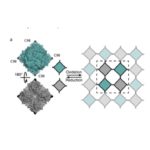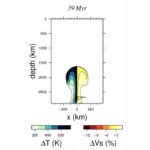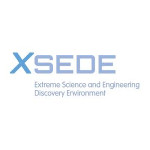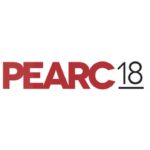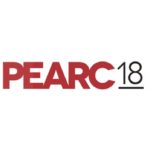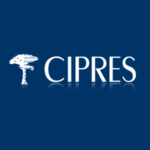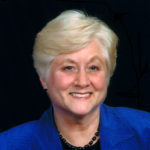In this TACC Podcast, Chemists at the University of California, San Diego describe how they used supercomputing to design a sheet of proteins that toggle between different states of porosity and density. This is a first in biomolecular design that combined experimental studies with computation done on supercomputers. “To meet these and other computational challenges, Paesani has been awarded supercomputer allocations through XSEDE, the Extreme Science and Engineering Discovery Environment, funded by the National Science Foundation.”
Podcast: TACC Powers Deep Earth Imaging
“In this TACC Podcast, Ross Maguire and Jeroen Ritsema of the University of Michigan describe how supercomputer simulations of volcanos show how mantle plumes form and how they rise from Earth’s mantle. What’s more, the researchers say their work could guide future experiments with seismic imaging and help get to the bottom of mysteries like the origin of Hawaii’s volcanos.”
XSEDE offers free HPC Training from Cornell Virtual Workshop
Today Cornell University announced that four new Cornell Virtual Workshop training topics are available at the Extreme Science and Engineering Discovery Environment (XSEDE) user portal. “The Cornell University Center for Advanced Computing (CAC) is a leader in the development and deployment of Web-based training programs designed to enhance the computational skills of researchers, broaden the participation of underrepresented groups in the sciences and engineering, and accelerate the adoption of new and emerging technologies.”
Apply Now for 2018 International HPC Summer School
Graduate students and postdoctoral scholars from institutions in Canada, Europe, Japan and the United States are invited to apply for the ninth International HPC Summer School on HPC Challenges in Computational Sciences in the Czech Republic July 8-13, 2018. “Hosted by the IT4Innovations National Supercomputing Centre, the summer school in Ostrava is organized by the Partnership for Advanced Computing in Europe (PRACE), the Extreme Science and Engineering Discovery Environment (XSEDE), the RIKEN Advanced Institute for Computational Science (RIKEN AICS), and the SciNet HPC Consortium.”
PEARC18 Conference Announces lineup of Keynote Speakers
The PEARC18 Conference has announced its lineup of Keynote Speakers. The event takes place July 22-27 in Pittsburgh. “PEARC18 is for everyone who works to realize the promise of advanced computing as the enabler of seamless creativity. Scientists and engineers, scholars and planners, artists and makers, students and teachers all depend on the efficiency, security, reliability and sustainability of increasingly complex and powerful digital infrastructure systems. If your work addresses these challenges in any way, PEARC18 is the forum to share, learn and inspire progress.”
Comet Supercomputer Assists in Latest LIGO Discovery
This week’s landmark discovery of gravitational and light waves generated by the collision of two neutron stars eons ago was made possible by a signal verification and analysis performed by Comet, an advanced supercomputer based at SDSC in San Diego. “LIGO researchers have so far consumed more than 2 million hours of computational time on Comet through OSG – including about 630,000 hours each to help verify LIGO’s findings in 2015 and the current neutron star collision – using Comet’s Virtual Clusters for rapid, user-friendly analysis of extreme volumes of data, according to Würthwein.”
Call for Contributions: PEARC18 in Pittsburgh
The PEARC18 Conference has issued its Call for Contributions. The conference takes place June 22-27 in Pittsburgh. “The Practice & Experience in Advanced Research Computing (PEARC) annual conference series fosters the creation of a dynamic and connected community of advanced research computing professionals who advance leading practices at the frontiers of research, scholarship and teaching, and industry application.”
Exploring Evolutionary Relationships through CIPRES
Researchers are exploring the Tree of Life with the help of the CIPRES portal at the San Diego Supercomputer Center. “As a community-built resource, CIPRES addresses what the scientists really want and need to do in the real world of research,” said Mishler. “Aside from increasing our understanding of the evolutionary relationships of this planet’s diverse range of species, the research also has yielded results of critical importance to the health and welfare of humans.”
Fighting the West Nile Virus with HPC & Analytical Ultracentrifugation
Researchers are using new techniques with HPC to learn more about how the West Nile virus replicates inside the brain. “Over several years, Demeler has developed analysis software for experiments performed with analytical ultracentrifuges. The goal is to facilitate the extraction of all of the information possible from the available data. To do this, we developed very high-resolution analysis methods that require high performance computing to access this information,” he said. “We rely on HPC. It’s absolutely critical.”
How Extreme Energy Jets Escape a Black Hole
Researchers are using XSEDE supercomputers to better understand the forces at work at the center of the Milky Way galaxy. The work could reveal how instabilities develop in extreme energy releases from black holes. “While nothing – not even light – can escape a black hole’s interior, the jets somehow manage to draw their energy from the black hole.”

